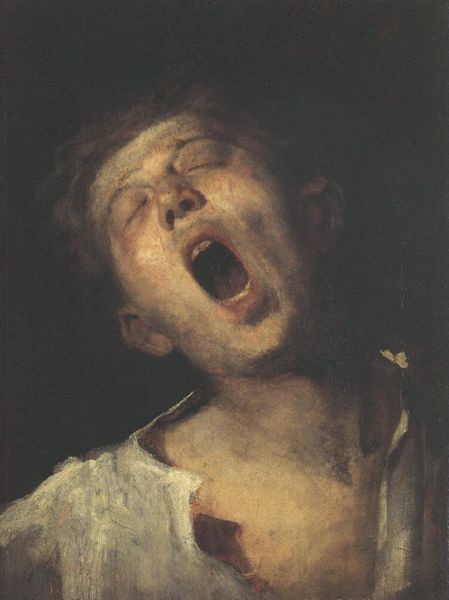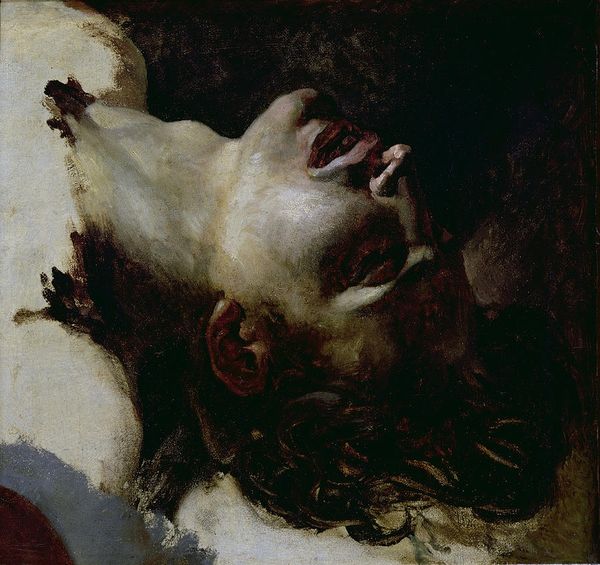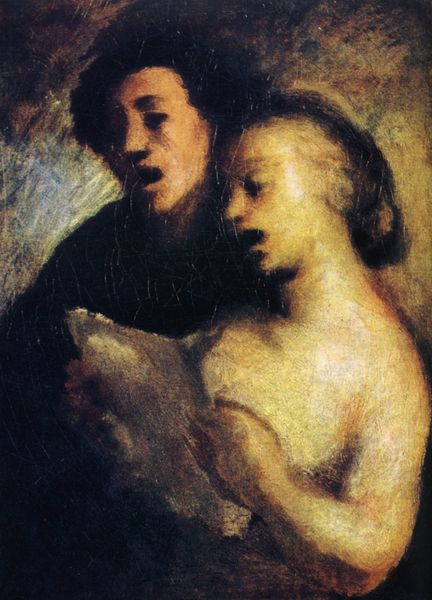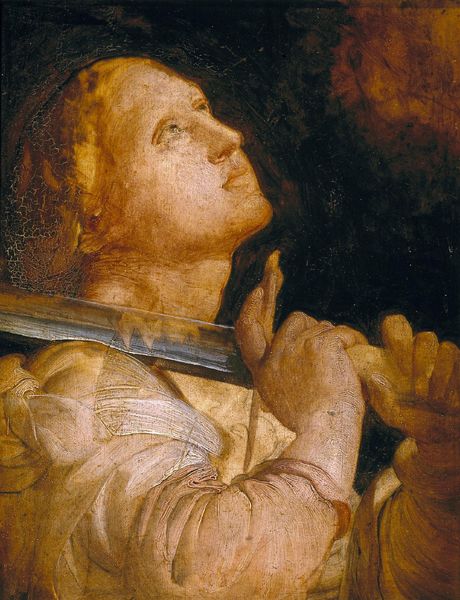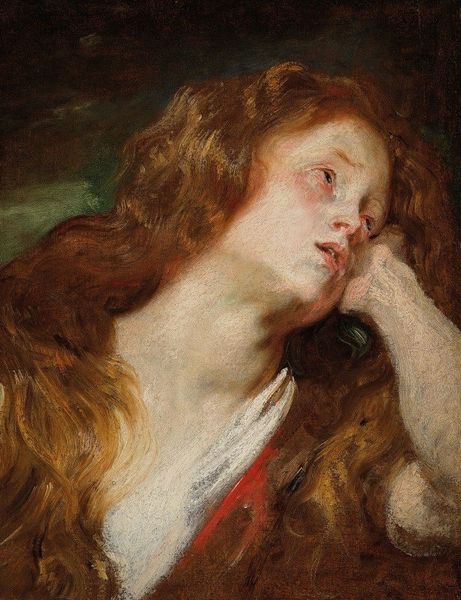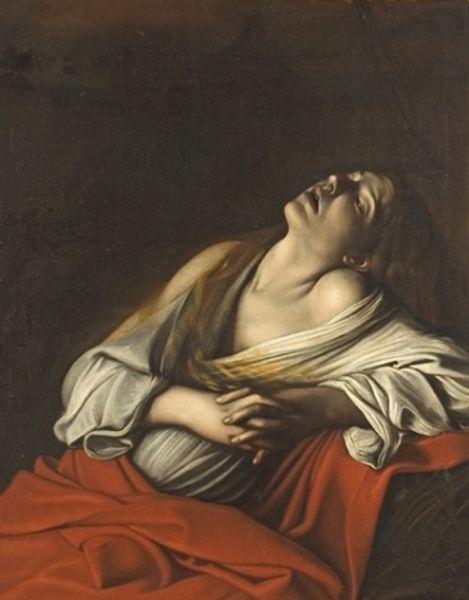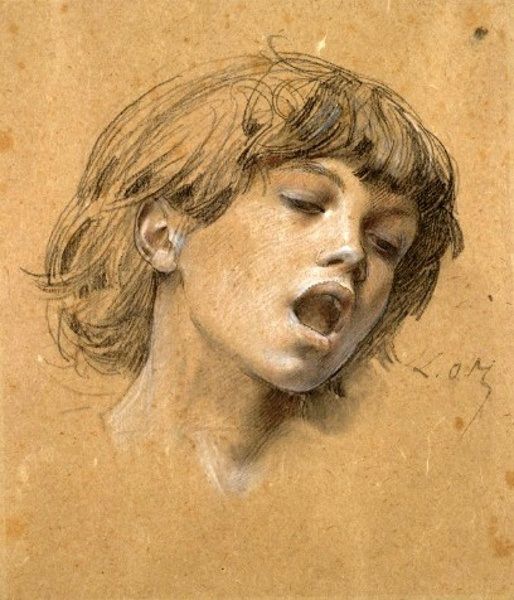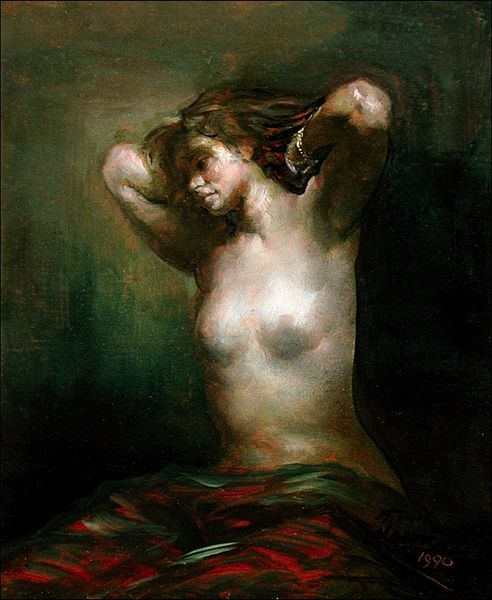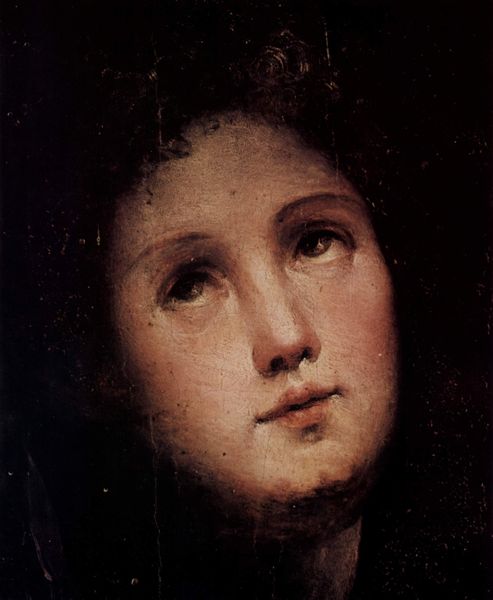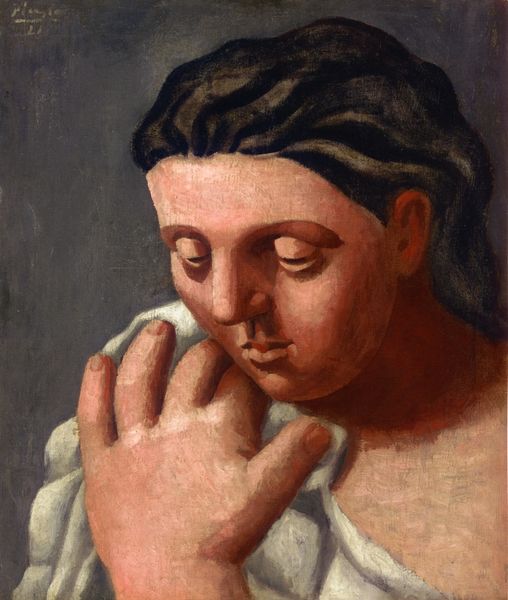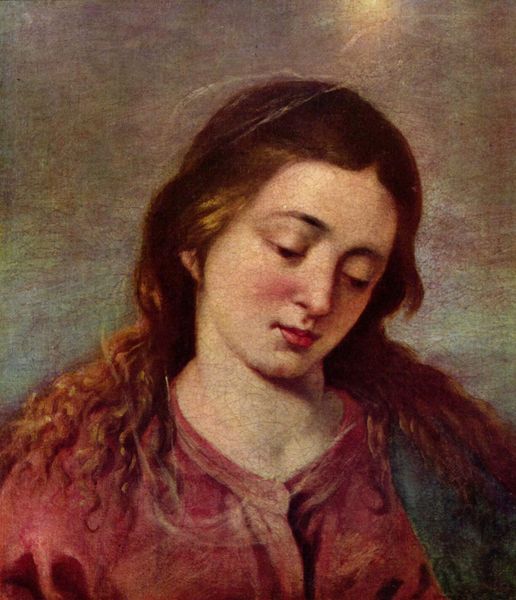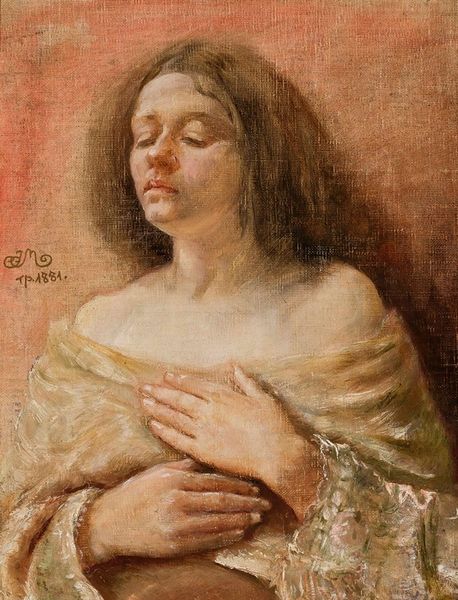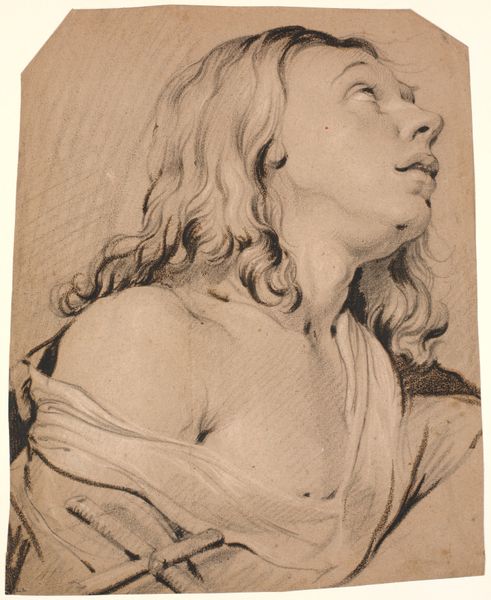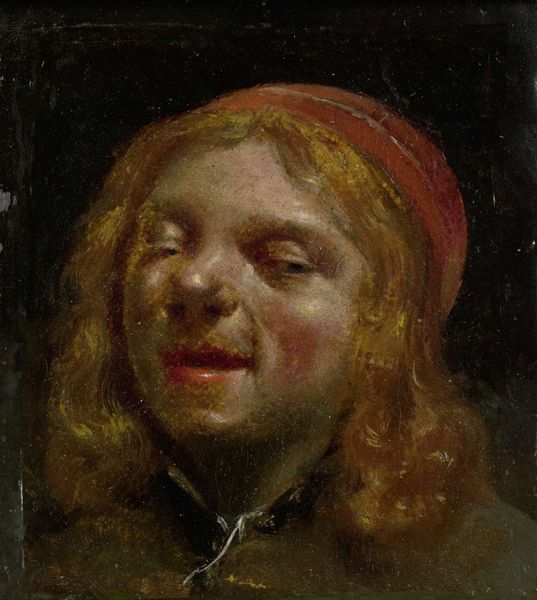
painting, oil-paint
#
portrait
#
baroque
#
painting
#
oil-paint
#
chiaroscuro
#
history-painting
#
academic-art
Copyright: Public domain
Editor: Here we have Jacob Jordaens' "Study of the Head of Apollo", an oil painting. The upward tilt of the head and dramatic lighting create a powerful sense of religious ecstasy. What stands out to you from a formalist perspective? Curator: Indeed. Observe the interplay of light and shadow, a prominent characteristic of Baroque painting known as chiaroscuro. How does the artist use this technique to sculpt the form? Editor: It definitely emphasizes the tension in the neck and the hollows of the face, almost exaggerating the emotion. The brushstrokes also seem quite loose, not really focused on accurate representation. Curator: Precisely. Consider how the visible brushwork and the dramatic contrast contribute to the overall dynamism. Note, too, the positioning of the figure against the dark background. This compositional choice forces our eye to concentrate on the light falling upon the skin and its textural nuances. What impact does that have on your interpretation? Editor: I suppose it elevates the texture and raw emotion rather than a precise likeness. So the subject matter, while referencing Apollo, is perhaps secondary to the purely aesthetic and formal exercise. Curator: Precisely. It's through these formal elements that the painting generates its power, regardless of the symbolic associations linked to Apollo. The composition, light, and brushwork combine to express an elevated state of emotion through pure visual language. Editor: I see. So by focusing on form and materiality, we're actually unlocking the painting's core meaning and impact. Thanks for that perspective! Curator: My pleasure. Analyzing art from a formalist view often clarifies and enriches our viewing experience, offering concrete means of understanding visual art.
Comments
No comments
Be the first to comment and join the conversation on the ultimate creative platform.
